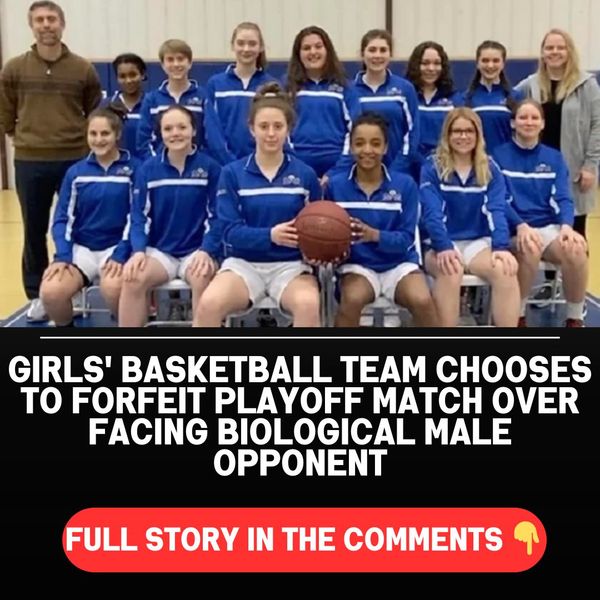
In a bold and admirable move, a Vermont Christian school recently made headlines for its decision to forfeit a playoff basketball game. The reason behind this decision was the opposing team’s inclusion of a biological male player on their roster.
Mid Vermont Christian School is an institution that proudly upholds its Christian beliefs. When the school discovered that their girls’ basketball team was scheduled to compete against the Long Trail Mountain Lions, a team with a male player, they stood firm in their conviction that this compromised the fairness of the game and the safety of their players.
Despite Vermont state regulations allowing biological males to participate in girls’ sports, Mid Vermont Christian School maintained their stance. The school believed that permitting this would set a negative precedent for the future of women’s sports.
The Eagles from Mid Vermont Christian School were ranked 12th and were set to play against the 5th seeded Long Trail Mountain Lions. However, by forfeiting the game, the Mountain Lions were given a free pass to the next round of the playoffs.
Vicky Fogg, Head of School at MVCS, passionately expressed her concerns, stating, “We believe playing against an opponent with a biological male jeopardizes the fairness of the game and the safety of our players. Allowing biological males to participate in women’s sports sets a bad precedent for the future of women’s sports in general.”
Mid Vermont Christian School is not alone in their reservations about competing against teams with male players. Other teams and schools have also expressed their concerns. The Vermont Principal’s Association has acknowledged these reservations and provided guidance on how to handle such situations.
What sets Mid Vermont Christian School apart is their unwavering commitment to their Christian beliefs. In the past, they have clashed with state officials over matters of faith. They have clearly stated their right to base decisions on their religious beliefs regarding hiring, admissions, and operational policies.
The school has also made it clear that there are certain topics they will not teach, such as those related to marriage and sexuality, as they contradict their religious convictions.
Aaron Warner of the Vermont Daily Chronicle contributed another perspective to the debate. He highlighted the inherent disadvantages of allowing a biological male to compete against female athletes in high school sports. He pointed out that in a recent game, the male player in question had an advantage in terms of height and strength, which allowed him to block seven shots.
Warner raised the question of fairness and asked, “In what world is this even remotely fair to other Vermont Division IV girls?”
The issue of allowing biological males to compete in girls’ sports is not limited to Vermont; it is a nationwide debate. There are varying viewpoints on the balance between inclusivity and fairness. Advocates argue that transgender athletes should be allowed to compete according to their gender identity, while others, like Mid Vermont Christian School, prioritize maintaining a level playing field for female athletes.
The principled stand taken by Mid Vermont Christian School serves as a reminder that the intersection of sports and social issues can be complex and challenging. While the school forfeited a game, they have sparked a larger conversation about the future of girls’ sports and the principles that should guide it.



